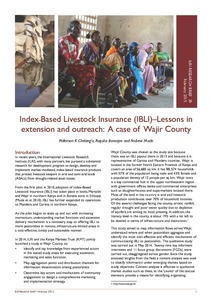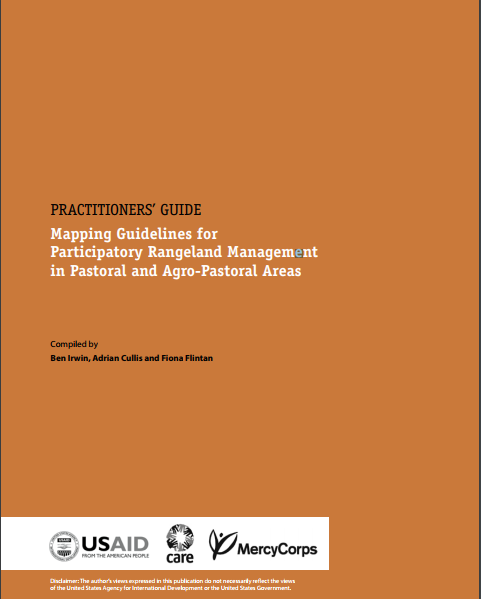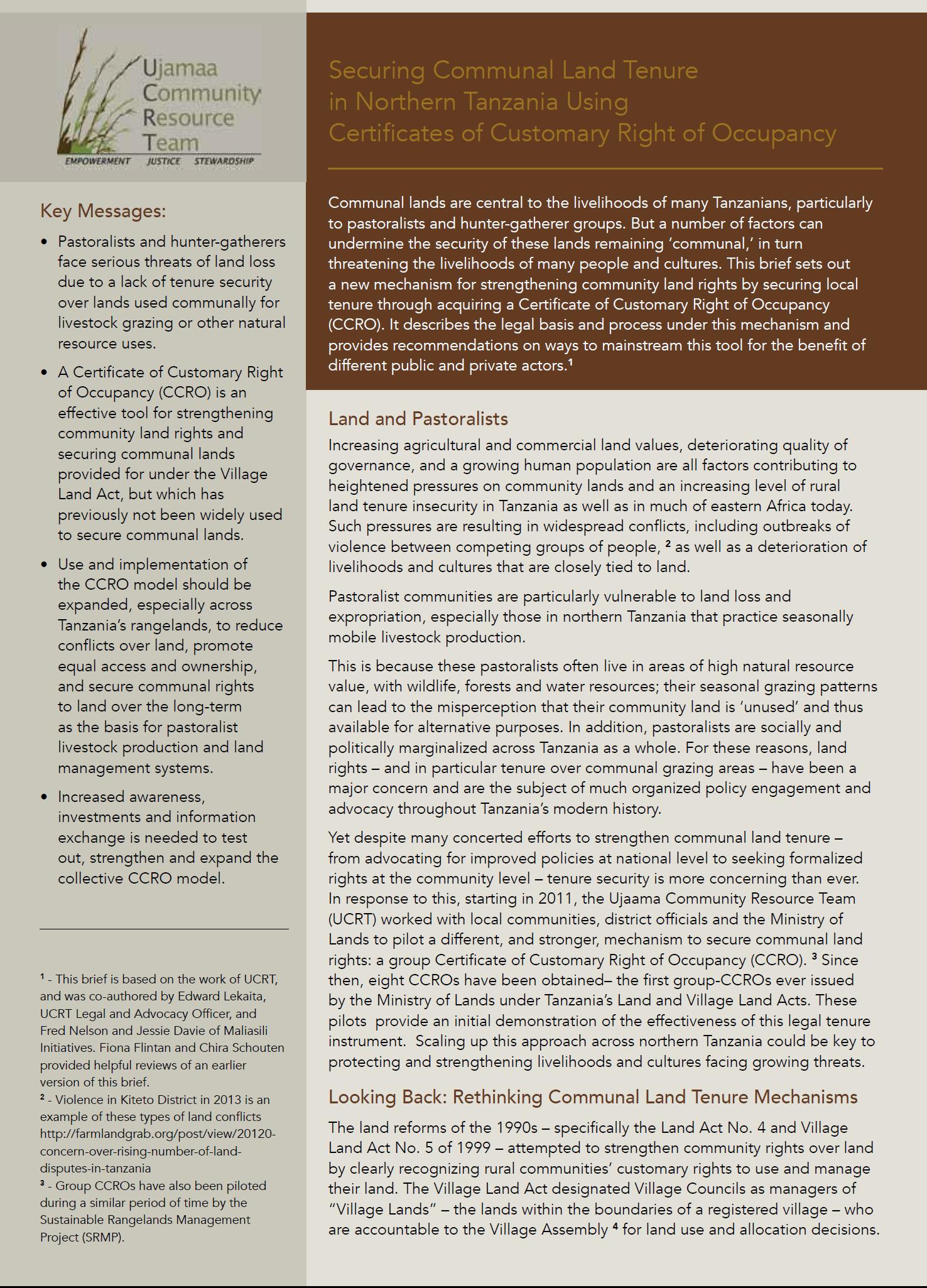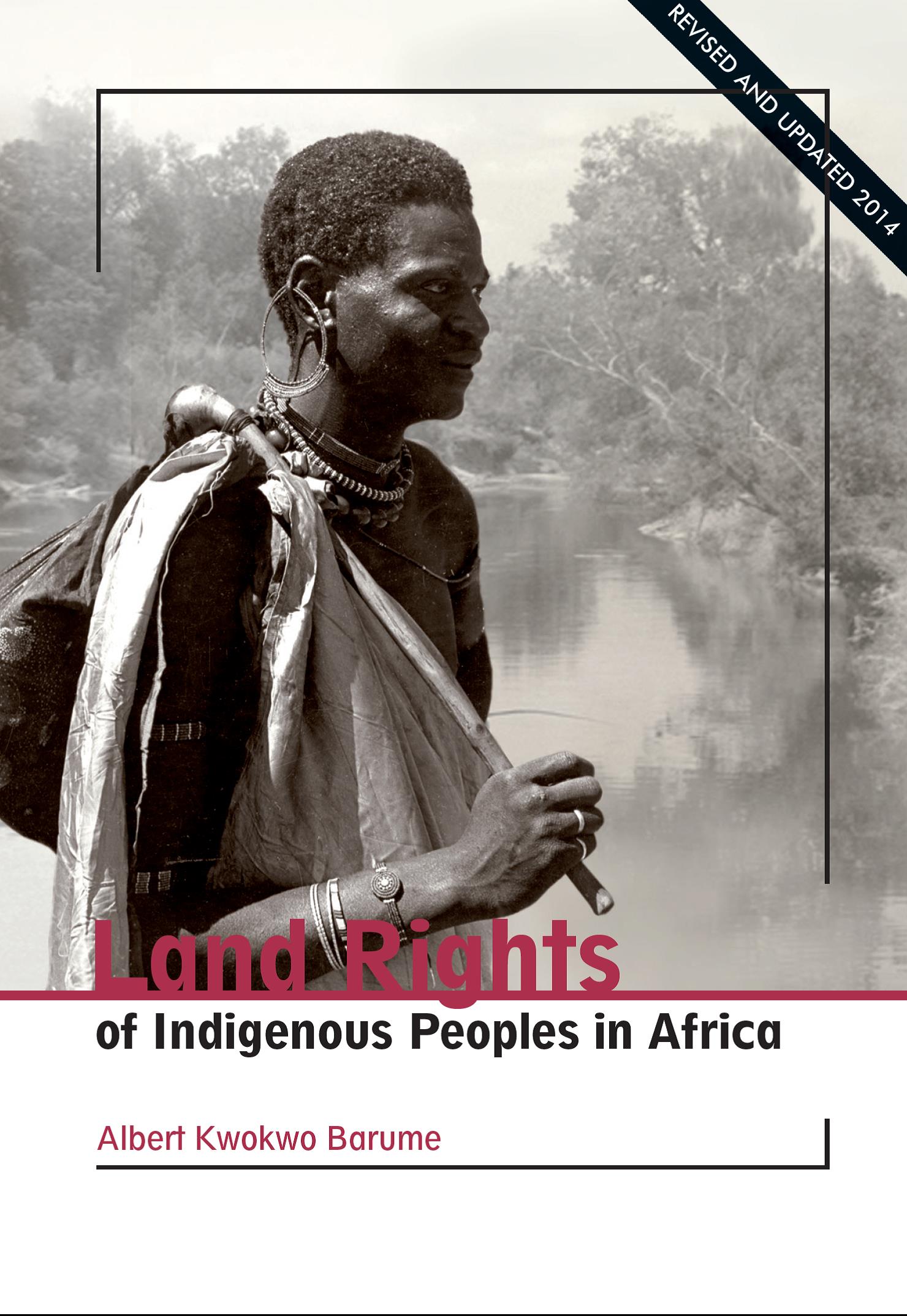Mapping Guidelines for Participatory Rangeland Management in Pastoral and Agro-Pastoral Areas
The purpose of these Mapping Guidelines is to support development practitioners (individuals and organizations) working in the rangelands and sub-humid grasslands of Ethiopia. Specifically, resource mapping can assist with investigating rangeland management systems, negotiating rangeland management plans, and implementing and monitoring progress in Participatory Rangeland Management (PRM). The Mapping Guidelines will provide rangeland management practitioners with a tool to help establish PRM within community, district, zone and regional rangeland management offices across Ethiopia.
PRACTITIONERS’ GUIDE Mapping Guidelines for Participatory Rangeland Management in Pastoral and Agro-Pastoral Areas
This Practitioners’ Guide provides the step-by-step instructions and checklists that will guide a mapping team through a mapping exercise.
What climate services do farmers and pastoralists need in Tanzania?
This report presents final findings from the baseline data collection exercise conducted for Global Framework for Climate Services (GFCS) Adaptation Programme in Africa. The GFCS programme, having a focus on agriculture, food security, health and disaster risk reduction, is implemented in Tanzania and Malawi.
The Tribe - Platform of participatory local development and management of communal rangeland resources
Sustainable development of pastoral and agro-pastoral systems, dominated by collective and/or tribal ownership of rangelands, is a key issue for the West Asia and North Africa region. These two systems are located in arid and semi-arid areas and are increasingly threatened by desertification process. The policy responses to tackle this complexity have been a sectorial and fragmented, “top-down” approach, putting forward technical solutions and neglecting the social context.
Sustainable livestock insurance for pastoralists
Land Governance in South Sudan : Policies for Peace and Development
South Sudan is a new country of 10.5
million people that has just emerged from conflict and still
facing challenges with recovery and development. Although
economic disparities, political exclusion and deprivation in
the distribution of political and economic power between the
northern and southern parts of then united Sudan were often
tendered as the proximal causes of the conflict, at the
center of the prolonged civil war was the struggle for
Does Livestock Ownership Affect Animal Source Foods Consumption and Child Nutritional Status? Evidence from Rural Uganda
In many developing countries,
consumption of animal source foods among the poor is still
at a level where increasing its share in total caloric
intake may have many positive nutritional benefits. This
paper explores whether ownership of various livestock
species increases consumption of animal source foods and
helps improve child nutritional status. The paper finds some
evidence that food consumption patterns and nutritional
Securing Communal Land Tenure in Northern Tanzania Using Certificates of Customary Right of Occupancy
Communal lands are central to the livelihoods of many Tanzanians, particularly to pastoralists and hunter-gatherer groups. But a number of factors can undermine the security of these lands remaining ‘communal,’ in turn threatening the livelihoods of many people and cultures. This brief sets out a new mechanism for strengthening community land rights by securing local tenure through acquiring a Certificate of Customary Right of Occupancy (CCRO).
Land Rights of Indigenous Peoples in Africa
This revised and updated edition of Albert Kwokwo Barume’s book from 2010 reflects some of the latest developments affecting Africa’s indigenous peoples and their land rights.









